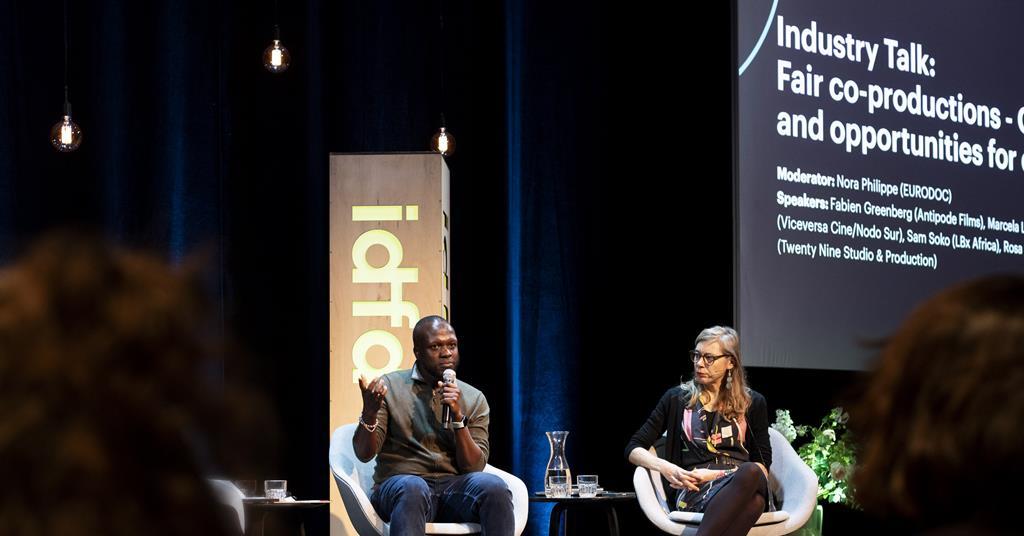Several uncomfortable topics came to the fore this week at the Amsterdam International Documentary Festival (IDFA) during a panel discussion entitled “Equitable Co-production – Obstacles and Opportunities for Equity.”
The concepts of equity and inclusivity, cultural authenticity and extractivism were discussed within the framework of a conversation about where and how revenue flows when filmmakers from the Global South work with European producers.
“Sometimes things just don’t work out,” IDFA festival director Isabel Arate Fernandez said candidly in her introduction. “Perhaps it’s because people don’t share or voice their expectations when they participate in a project. The word ‘fair’ comes up a lot.”
Sam Soko, director and producer at Kenyan production company LBx Africa, said directors from the Global South who work with European producers often feel like there is no change due to a lack of budget transparency.
One of the “red flags” Soko was quick to point out was when a Kenyan director produced a film produced by a European company without a Kenyan producer.
“If you are a Kenyan filmmaker in 2025, (filmmakers) need collaborators in Kenya,” he argued. “The idea of having just a French producer and a Kenyan director and 90% of the money going back to Europe seems familiar.”
Another question was how to evaluate the relative contributions of the various co-producers. “Even though you have a very good contract, sometimes the daily conversations are different,” said Marcela Liscano, a Colombian producer at the production company Visivasa Cine. Lizcano recently joined a think tank in Durban that is investigating how Latin American filmmakers can collaborate with partners in Africa and other parts of the Global South, even when formal co-production agreements are not in place.
non-financial contribution
Liscano emphasized the importance of finding better ways to measure partners’ “non-financial” contributions to production.
“A lot of[Latin American]people and African people say, ‘I put in the story, the music, the colors, the sounds, the characters, everything, and also the symbolic knowledge of the community,’ and then somebody who put more money in it owns everything,” she said.
She called on filmmakers to “break out” of old bad habits and rethink how they structure co-productions.
Nora Phillip, president of the Eurodoc organization who chaired the committee, raised the “ontological” question of how an entity such as a river could have its own legal rights within the framework of film co-production.
“How can we bestow human authority and rights on what the Western world calls objects?” she asked. “The same thing is happening now in film, where a river or a lake or an environment becomes a legal entity that owns some of the intellectual property and is a co-producer. That’s very interesting.”
Behind the panel appeared Iraqi producer and director Zahra Ghandour. flannel Following its premiere at TIFF, it has been revealed that it will be screened in international competition. screen About the experience of negotiating with potential partners in Europe.
“Some young people[in Iraq]have beautiful films. They are very excited that European producers will come on board, but they actually lose the films,” she observed.
“This is the second year that I participated in this project (Franc)“I started working with a[European]producer,” Ghandour continued, “a few months later, she sent me a contract. I was shocked. I really didn’t understand it. It was very difficult language, but in short, I wanted him to… I’m just a fixer working in the field for women. And it was my movie, my story. I’m working in the field every day with the team in Baghdad. I was like, ‘No, I’m not going to sign this.’
“It hurt a little bit that someone could treat me like that,” Ghandour said.
(Tag translation) Documentary








